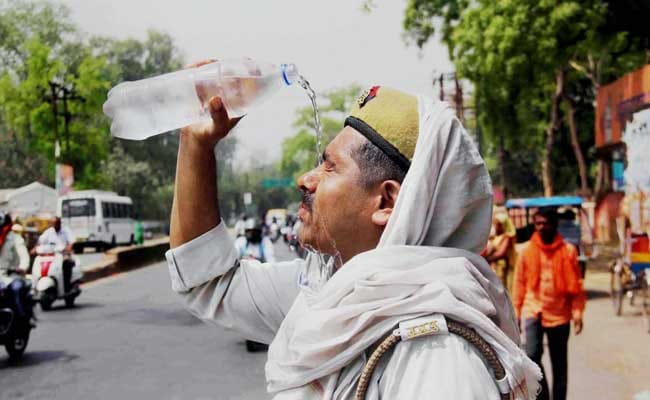
Heat wave conditions will continue in central and northwest central India, including parts of Rajasthan, with maximum temperatures in some parts expected to reach 50 degree Celsius, the MeT department has predicted. The weather department has issued a "red colour" warning for the national capital as the city recorded the hottest day of the season on Friday.
It has forecast severe heat wave conditions for Punjab, Haryana, Chandigarh, Delhi, and western Uttar Pradesh today.
Temperature in some parts of Delhi crossed 46 degress Celsius today. The Safdarjung Observatory, which provides official figures for the city, recorded temperature at 43.5 degrees Celsius, three points more than the season's average.
On Friday, Sri Ganganagar in western Rajasthan recorded highest maximum temperature of 49.6 degree Celsius. The national capital region also sweltered under the hottest day of the season, with the mercury rising to 47 degrees Celsius in some areas.
The MeT department has issued a "red-colour" warning for northwest central India. The IMD has four colour-coded messages -- green, yellow, amber and red. Green indicates normal conditions while red denotes extreme weather situations.
Temperatures over parts of the south peninsula are likely to remain two to three degrees above what is considered normal during this time of the year, during the next three days.
No significant change in maximum temperatures is likely over the rest of the country during the next 24 hours.
The weather agency has predicted a heat wave to severe heat wave conditions over parts of the northwest, central and adjoining east and peninsular India during the next four to five days.
Track Latest News Live on NDTV.com and get news updates from India and around the world

